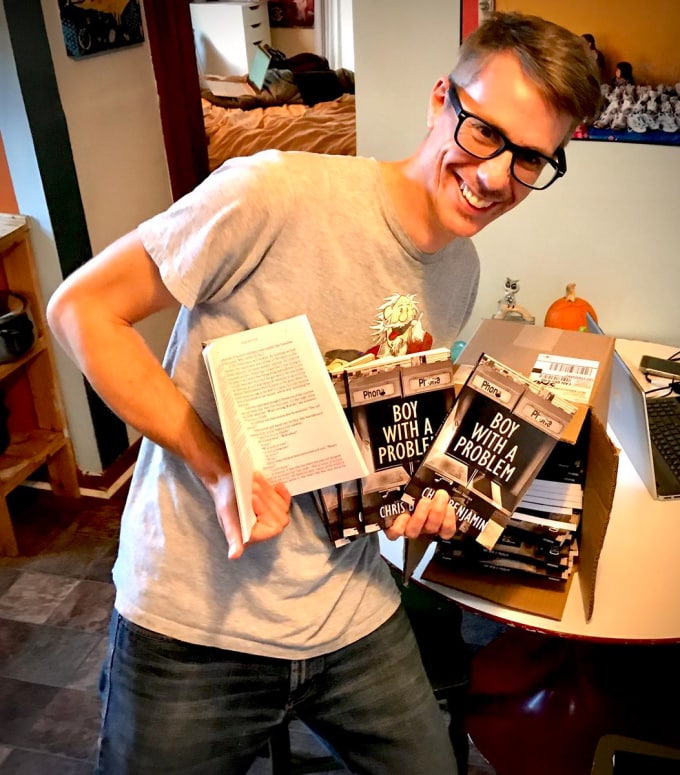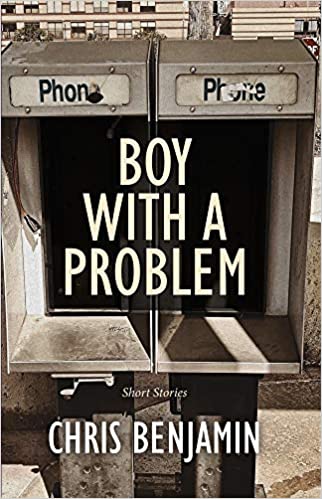
KJIPUKTUK (Halifax) – Chris Benjamin’s Boy With a Problem is a collection of short stories that stays with you long after reading. The stories are wise and written with compassion, featuring people who are often poor, often deal with mental health issues or loneliness, and live in a world that doesn’t care a whole lot one way or another. Most stories take place in Nova Scotia
Before reading Boy with a Problem I knew Chris Benjamin as the writer of the excellent Indian School Road, a book on the horrendous Shubenacadie Residential School. He has written a novel and more non-fiction as well.
“The basis of every good story is simple. You need a protagonist with a problem. Establish the problem on page one. Solve it by page 300. The rest is tension,” is the advice of a failed novelist/father to his son in the story that gives the book its title.
In Benjamin’s short stories people indeed have a problem or two when we first meet them, then things happen, but at the story’s conclusion the problems are still there. Occasionally his characters are a bit the wiser for it, but that’s not a given.
That may not be as satisfying as the clean ending in the father’s novel-writing recipe, but it makes his characters feel real, and his story lines ring true. Benjamin tells me that for him the act of writing about the protagonists in his short stories is a test of empathy, maybe his readers face a similar test. When it works, and it often works in Benjamin’s stories, it’s a joyful thing.
You wrote the stories over a period of 17 years, but somehow the book, despite the very different characters featured in the stories, doesn’t come across as fragmented. What is it that ties it all together?
Mostly I just get ideas, and I try to write them, and sometimes they work, and sometimes they don’t. I’m not really trying to write to fit a specific theme.
A friend suggested that there is a common thread of loneliness and disconnection, and I thought that was a pretty good observation. I had been playing with the idea of outsiders and underdogs, marginalized maybe, in some cases. But I liked that idea of loneliness. And when you think about it, when you’re marginalized by society, you’re lonely often. When you get obsessed with the wrong things, you end up a lonely person as well.
My characters are lonely because they can’t figure out where they belong. And so they have trouble connecting with people, even the ones who are in loving relationships often still sort of struggle with feeling alone.
What is it that you like about writing short stories?
Short stories for me are largely about character. I start with a story idea, but then in developing the story it’s all about developing the character. The challenge becomes to put myself in another person’s shoes and see the world through their eyes. It’s an invented person, of course, but it is a great way to flex your empathy muscle a little bit.
Not all these characters are nice people, but they’re all going through interesting things, and so I just want to see the world through their eyes. It often leaves me with a different point of view on things, or a different way of thinking.
What I enjoy about writing is that it’s this great imaginative act. Hopefully, that’s a skill I can take with me through life, so that it makes it easier to empathize with people.
What was it like to launch a book in the middle of a pandemic?
My first book, which was published 10 years ago, now was my novel Drive-By Saviours, and we did the launch at the Company House on Gottingen Street. The place was jammed, we had music, it was a big party. Obviously that’s not going to happen this time, and I haven’t done any book signings. I did do a reading at the Lunenburg Lit Festival, which was great.
I guess I’m an introvert in general, but put me on a stage and give me a microphone and I’m happy to perform, read a story or whatever. I enjoy meeting people and talking to them about writing. I missed that aspect of it, but it is what it is. There are worse problems to have.

Boy with a problem, by Chris Benjamin. Pottersfield Press.
ISBN: 9781989725276
With a special thanks to our generous donors who make publication of the Nova Scotia Advocate possible.
Subscribe to the Nova Scotia Advocate weekly digest and never miss an article again. It’s free!



